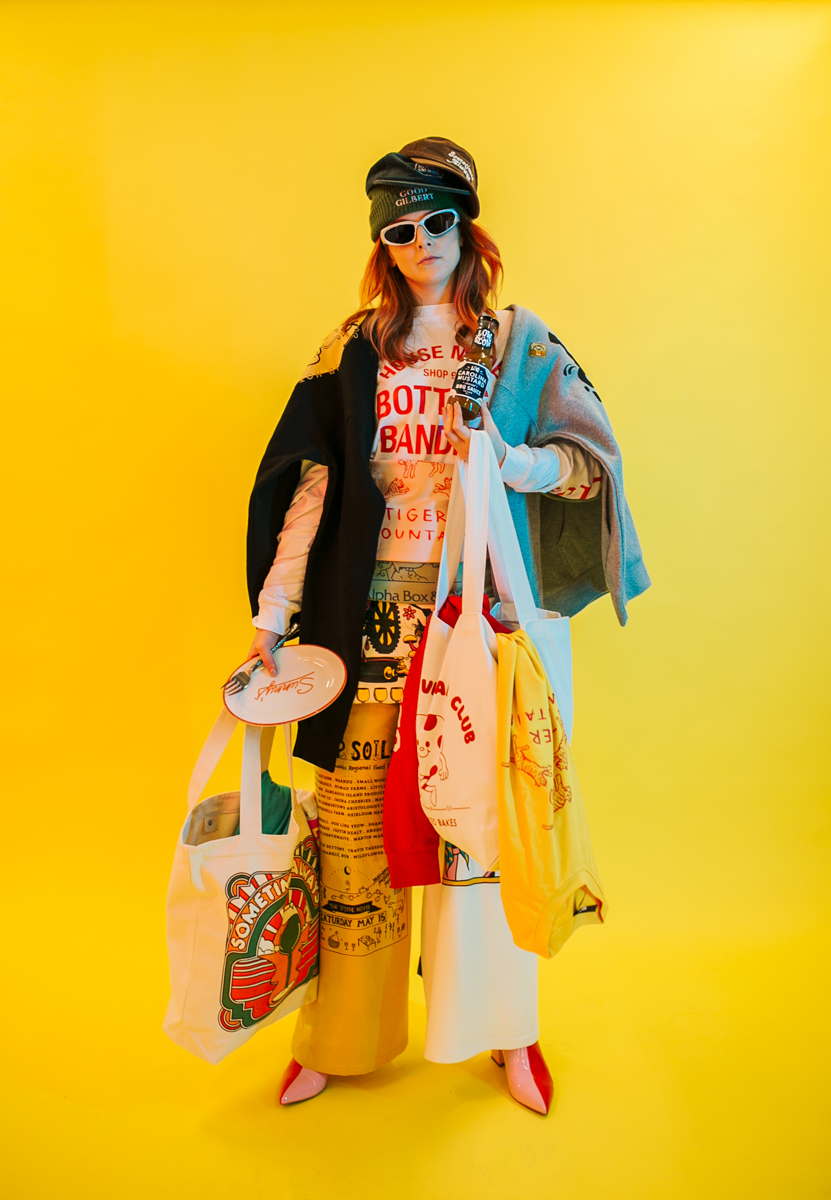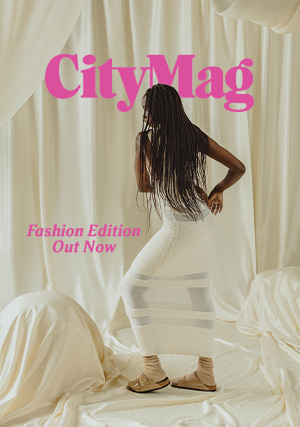Being loyal to your local used to mean stopping in for a coffee every day, but Adelaideans are increasingly wearing their love of their favourite hospo haunts on their sleeves.
The rise of the hospo hype beast
Owning merchandise from a restaurant once meant having a few shirts from Hard Rock Cafe tucked away inside your closet. Food fashion sat alongside snow globes and fridge magnets as souvenirs of places you’d visited on holiday – whether it was a shirt from Planet Hollywood in Las Vegas or a hoodie from Bubba Gump Shrimp Co in Hong Kong.
This article first appeared in our Spring 2022 Fashion Edition, on streets now.
Fast forward to 2022 and restaurant merch has never looked so good. No longer cornered by the global chains and corporations, bars and restaurants are translating their bold branding into t-shirts, caps, hoodies, mugs and even one-piece tracksuits.
It comes amid a hyperlocal consumer focus and small businesses looking to diversify following a tough two years of surviving the pandemic. In Adelaide, many venues across the city and inner suburbs have turned merchandise into a side hustle.
Big Easy Group director Oliver Brown says his company works with a creative agency to design merchandise for its venues, including Bottega Bandito and Bowden Brewing.
Selling merch is a way for people to connect with the venue and show their loyalty, he says. Beanies, hoodies, caps and shirts are among some of the merch sold across his venues, such as Prospect’s Bottega Bandito.
He says the merch has to be “attractive” to suit the clientele and demographic of their venues. For example, Bowden Brewing sells a pair of Hard Yakka shorts.
“Personally, I haven’t worn anything besides hospitality merch in seven years,” Oliver says.
“For us, it has always been about the brand experience and not just about coming in for a coffee.
“It’s a different way for people to connect with us and show their loyalty. And for a lot of us, hospitality is an extension of our own lifestyle.”

Big Easy’s pivot into hospo apparel came two years ago, at the start of COVID-19. Then, hospitality venues were looking for new ways to engage with their customers who were stuck at home or unable to come into their favourite venues.
He says many businesses diversified and began offering takeaway options, be they wine clubs, take-home coffee beans or merch.
“The pandemic made people look at business and think of new initiatives, so they didn’t just have to be a one-trick pony,” Oliver says.
“We see people wearing our stuff all the time as well, and it’s always pretty unreal because it’s that real connection between the customer and us, and that’s what we are all about.”
Georgia Ion, an integrated branding strategist from Adelaide marketing agency kwpx, says hospitality merch turns customers into “little roving billboards” for certain establishments.
She says the industry relies heavily on word of mouth and personal recommendations, and having people on the streets dripping in your merchandise is a strong endorsement of your venue.
“You can have the coolest t-shirts ever, but if your restaurant sucks, no one’s going to wear it,” Georgia says.
“Most of the other brands and other industries pay exorbitant amounts for influencers and brand champions and customers that will run around screaming their name from the rooftops.
“So, for restaurants and bars to have people walking around wearing t-shirts or hats, those brand champions are so much more valuable to their business than any kind of social media post.”

Georgia says social media has allowed small business owners to become “marketing-savvy restaurateurs”, and it isn’t just a tool of the big players.
“In the last decade, marketing, just through the internet, essentially has become so much more accessible for small businesses,” she says.
“We’ve got access to technology where anyone, if they really have a brand mind or creative mind that can understand the brand and the importance of that, can really build a brand.”
Clever Little Tailor, the cosy Peel Street bar, produced some of the earliest hospo merch of our post-small-venue-licence era. Specifically, a salmon-coloured t-shirt with a hand-drawn image of the bar on the back and the letters ‘CLT’ inside a diamond on the front.
Hospitality veteran Mark Kamleh says the Clever Little Tailor shirt is among his most-worn clothing items. He calls it a “high-quality shirt” that “still looks perfect”.
Kamleh should know, as he’s the first to admit he doesn’t shy away from merch. From his early days hosting Skin Contact wine parties to running the Tiger Mountain pop-up, printed t-shirts have been there.
“It’s kind of like a club,” Kamleh says.
“People wear fancy brands, and they kind of loosely associate with other people that wear their brand. So, if you were wearing Ralph Lauren and you can catch someone else wearing a similar high-end brand, you have this similar taste.”
In 2016, Kamleh released a Skin Contact t-shirt riffing on the design of the women’s clothing brand Sportsgirl. About 200 of those got around the streets of Adelaide. Six years on, there are still a few on eBay and Gumtree hanging about waiting for a loving wearer.
“I think we thought it was very funny,” Kamleh says. “Our parties, at a time, were successful, and people really liked coming to them, and they got excited. So, it was just beautiful.
“They are like band t-shirts. If you buy a band t-shirt at a gig, it’s like you saying, ‘I love this band, and I want everyone to know that I love this band’.”
He says it also gives local artists a roving advertisement for their work. For example, Billie Justice Thomson designed a season of Tiger Mountain t-shirts.

Billie, an artist with a kitsch, playful style, did the designs for the merchandise for Adelaide Central Market institution Lucia’s.
The purveyor of fine food and pasta started selling aprons, tea towels and other branded merch about six years ago. While they’ve also never sold t-shirts direct to the public, there are a few that escape the confines of the Market.
Lucia’s managing director Simon Bugeja says they have been giving customers a piece of themselves to take home long before this current trend.
“I remember when the restaurant used to do matches,” he says. “My grandfather used to do them, and they were black, and they had gold printing on them.”
Lucia’s did its first merchandise run in 2016, printing its logo on tea towels. They made CityMag‘s Christmas gift guide for that year, which triggered a run on tea towels.
“It’s actually funny, I think we’ve printed, like, I don’t know, 100 or 200, and it sold out on like the first day,” Bugeja says.
“I guess people like to express what they like, and owning a piece of the restaurant they love brings about a sense of community and belonging.”





